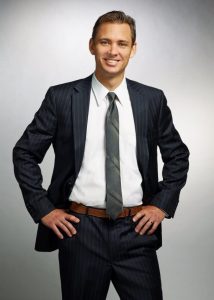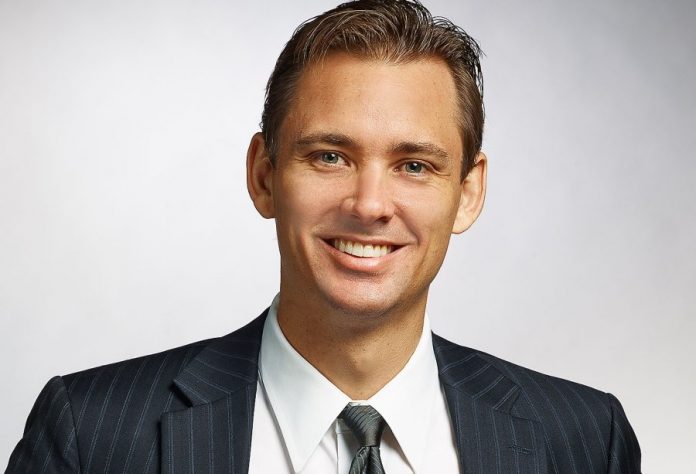
By Glen D. Smith of Glen D. Smith & Associates with Raymond James
Entrepreneurs have earned a reputation as risk takers. Media stories about high-flying entrepreneurs like Richard Branson make it seem like being an entrepreneur and an adrenaline junkie go hand-in-hand.
Despite this common belief, successful entrepreneurs avoid foolish risks and mitigate downside potential, as shown in a study by All Business. Entrepreneurs can use their risk assessment abilities to translate success in business to success in personal finance.
How to establish your risk tolerance
Like entrepreneurship, investing requires quantifying risk tolerance. Investors are wise to decide how much portfolio decline they can risk. 10 percent? 20 percent? 50 percent? Most of us grow uncomfortable with losses beyond 10 percent and draw a line in the sand well before 50 percent.
Investors are also wise to factor their liquidity needs into their risk tolerance. Higher liquidity needs affect risk tolerance because you want to avoid being forced to sell at a loss when you need cash. For this reason, higher liquidity needs call for a more conservative mix of assets.
If assets are not needed for a longer period of time, assets with more volatility and upside potential make sense. Entrepreneurs must consider the liquidity needs of their business and personal finances. For example, new equipment, hiring contractors and employees, advertising, inventory, and covering costs during slow periods all require cash reserves.
Effects of the market
Financial advisers pick financial products based on their client’s risk tolerance and liquidity needs. Liquidity needs determine your time horizon. When money will be needed soon, financial advisers make certain that the needed funds are available without sacrificing the benefits of a bull market or being forced to sell volatile assets during a downturn.
Financial advisers also choose less aggressive options for clients with a less than top tier risk tolerance, such as dividend stocks and highly-rated bonds. For investors willing to accept more risk for bigger possible returns, financial advisers consider more volatile instruments, such as growth stocks, high-yield bonds, options and commodities.
Personal goals are important. An investor with the goal of keeping ahead of inflation need not invest in high-risk vehicles, but an investor who wants to double his money in two years must accept higher-risk opportunities.
Diversification
Achieving optimized diversification takes knowledge, attention to detail and discipline. True diversification means holding different asset classes, such as stocks, bonds and cash equivalents. It also means diversifying within asset classes. For example, you may need to diversify stocks between different industries, company sizes and countries.
Cash
Business owners need more cash reserves than those who earn a salary. Downtimes occur in all industries, and business owners have bills like everybody else. Also, even in slow periods, business owners need to make payroll and manage other expenses that keep the business operating.
The key for business owners is determining how much cash is needed and when. Once a business owner knows this, he or she is free to invest the balance in instruments that may return more than bank interest.
Though having cash in the bank is important, no business owner should keep more than the FDIC limit.
Why you need a financial planner
As a CERTIFIED FINANCIAL PLANNER™ Professional (CFP®) for many busy business owners, Glen D. Smith has seen how much difference planning makes in the lives of entrepreneurs. When you meet with a CFP®, you may learn new money-management strategies.
Thorough Financial Advisors use financial plans like a physician uses an X-ray or MRI. Financial plans are diagnostic tools that answer questions like whether you are on track for retirement, what is the opportunity cost of too much cash and do you have the right balance of risk?
Business owners need to work with a financial planner who knows the financial products that may achieve their goals and can manage all the details.
469-212-8072 | www.glendsmithandassociates.com | 1029 Long Prairie Road, Suite C, Flower Mound, TX 75022
Any opinions are those of Glen D. Smith and not necessarily those of RJFS or Raymond James. Securities offered through Raymond James Financial Services, Inc., member FINRA / SIPC. Investment advisory services offered through Raymond James Financial Services Advisors, Inc. Glen D. Smith and Associates is not a registered broker/dealer and is independent of Raymond James Financial Services, Inc. Certified Financial Planner Board of Standards Inc. owns the certification marks CFP®, CERTIFIED FINANCIAL PLANNER™, CFP® (with plaque design) and CFP® (with flame design) in the U.S., which it awards to individuals who successfully complete CFP Board’s initial and ongoing certification requirements.














.jpg)


